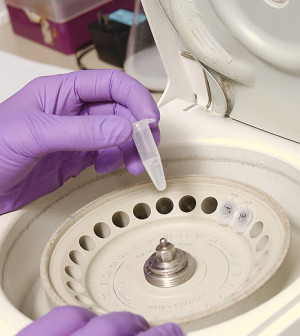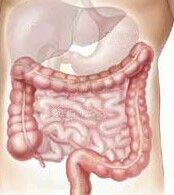- The Best Time of Day to Drink Bone Broth to Maximize Health Benefits
- 8 Ways to Increase Dopamine Naturally
- 7 Best Breads for Maintaining Stable Blood Sugar
- Gelatin vs. Collagen: Which is Best for Skin, Nails, and Joints?
- The Long-Term Effects of Daily Turmeric Supplements on Liver Health
- Could Your Grocery Store Meat Be Causing Recurring UTIs?
- Are You Making This Expensive Thermostat Error This Winter?
- Recognizing the Signs of Hypothyroidism
- 10 Strategies to Overcome Insomnia
- Could Artificial Sweeteners Be Aging the Brain Faster?
Your ‘Healthy’ Bacteria Are as Individual as You Are


When it comes to the communities of helpful bacteria living in and on people, “one-size-fits-all” is definitely not the rule, a new study finds.
A team at the University of Michigan found wide variation in the types of bacteria that healthy people have in their digestive tracts and elsewhere, suggesting that beneficial communities of microbes come in many different forms.
Each person has a unique collection of bacterial communities arising from their life history, diet, medication use and environmental exposures, the researchers said. Collectively, these communities are known as the “microbiome.”
“What our data shows is that just because a person’s microbiome is different doesn’t make it unhealthy,” study author Patrick Schloss, an associate professor of microbiology and immunology at the university’s medical school, said in a school news release. He said the researchers also “demonstrates there’s more to learn about the factors that cause one’s microbiome to change.”
Schloss’ team analyzed bacteria samples from nearly 300 healthy adults. The samples were gathered from 18 places on the body, including the mouth, nose, gut, behind each ear, and inside each elbow.
The researchers found that the type of community in one location can predict the type of community in another location, according to the study published April 16 in the journal Nature.
“What was unexpected was that it was possible to predict the type of community a person had in their gastrointestinal track based on the community in their mouth,” Schloss said. “This was possible even though the types of bacteria are very different in the two sites.”
The mix of microbes living in certain locations can even reveal some aspects of a person’s life history. For example, level of education was linked with vaginal community type, the team found, and whether a person was breast-fed was associated with their gut community type. Gender also influenced several types of community types.
The researchers did not find a link between changes in community type and any changes in a person’s health.
The findings might have practical applications sometime in the future, Schloss said.
“Understanding the diversity of community types and the mechanisms that result in an individual having a particular type or changing types will allow us to use their community type to assess disease risk and to personalize their medical care,” he explained.
More information
The U.S. National Institutes of Health has more about you and your microbes.
Source: HealthDay
Copyright © 2026 HealthDay. All rights reserved.










